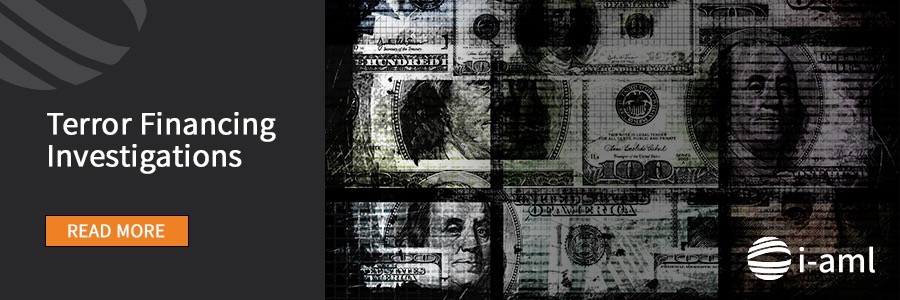The role of cryptocurrencies in illegal financing came up for discussion once again after the Wall Street Journal reported that Hamas and other militant groups used the technology to raise millions of dollars before attacking Israel.
Some lawmakers responded by calling for tougher laws to curb the utility of crypto for criminals and groups subject to US sanctions.
Crypto companies say they are working to keep such users off their platforms and argue that digital currencies can help law enforcement track bad actors.
Here’s a look at the questions raised by Hamas’ use of cryptocurrency.
Why do terrorist organizations use crypto?
Hamas and its allies such as Islamic Jihad and Hezbollah have been designated as foreign terrorist organizations by the US government and subject to sanctions by the US Treasury. This limits their access to the international banking system.
Most of the illegal financial activity in the world occurs through the traditional banking system, as well as in cash. But crypto has become an important means of financing confiscation entities and money laundering, because crypto users can move value around the world instantly by using so-called digital wallets.
Hamas has been trying to raise crypto funds publicly since at least 2019, through its Telegram channel.
Crypto wallets linked to Islamic Jihad, a terrorist organization linked to Hamas, received up to $93 million in cryptocurrency between August 2021 and June of this year, according to crypto research firm Elliptic.
Wallets associated with Hamas itself received approximately $41 million during a similar period, according to the Tel Aviv-based research firm BitOK.
The engineer from Iron Dome explains why you should be happy when you hear a big “boom”.
Does the person in charge of the abductees, Gal Hirsch, get paid for his position? We checked
The researcher who explains – this is how the second phase of Hamas’s plan went wrong
Agriculture, cyber and sustainability: Costa Rica and Israel are building a common future
Can digital wallets be traced?
sometimes. Many crypto transactions are carried out in publicly visible ledgers called blockchains, which are kept up to date in real time and cannot be changed. This allows authorities to monitor and monitor such transactions as they happen or connect the dots and realize they happened after the money has been transferred.
But crypto has other complexities. Blockchains identify users by wallet addresses rather than names. At first glance, a researcher examining the Bitcoin ledger would see only a string of letters and numbers – for example, 1H939dom7i4WDLCKyGbXUp3fs9CSTNRzgL, an address linked by the Treasury Department to an alleged Iranian cybercriminal.
Another problem is that many crypto transfers are not done on public blockchains. Trading platforms such as Coinbase Global and Binance use private internal ledgers to track their users’ trades and balances.
In order to trace these types of transactions, the police and intelligence agencies request access from the company that operates the platform – just as they would get access to a regular bank account. Major crypto platforms say they respond to hundreds of such subpoenas a week.
“Crypto and illegal finance are a paradox in a way,” said Ari Radburd, director of global policy at blockchain intelligence firm TRM Labs and a former senior official at the US Treasury Department. “We have more visibility than before, but we still don’t have full visibility.”
How do crypto companies try to prevent illegal transactions?
Financial intermediaries in the US are required to perform so-called ‘know your customer’ checks on their users, which help investigators connect the identities of real people with crypto wallets.
Some crypto platforms take extra steps to prevent bad actors from using their services. Many work with blockchain research firms to stay informed about suspicious wallet addresses and employ retired intelligence or law enforcement personnel as members of their compliance teams.
The largest U.S. crypto exchange, Coinbase, says it has more than 400 compliance staff and blocks users from transacting with more than 8 million crypto addresses linked to illegal financing. Coinbase also says it has developed a tool A proprietary that intercepts crypto transactions by sanctioned entities in real time, and reports them to the authorities.
What are the gaps and problems, and how do the policy makers react?
Regulation, enforcement and compliance around the world are not uniform. Crypto’s ability to cross borders means it can move quickly from highly regulated to laxly regulated places. And authorities can’t freeze or seize crypto if users keep the coins in a wallet that they keep privately with them, instead of on a trading platform.
US authorities earlier this year accused Binance, the world’s largest crypto exchange, of failing to ban Hamas and other terrorist organizations from using its platform.
There are other challenges. Some cryptocurrencies, such as Zcash and Monero, are designed in advance to maximize user anonymity. Authorities say privacy coins (privacy coins) can be useful to criminals.
“Anyone who implies or claims that criminals use Zcash is just speculating,” said Chris Tumau, a spokesman for the company that issues the currency, Electric Coin Co. He admitted that law enforcement cannot track money transfers in Zcash. A representative for Monero did not respond to requests for comment.
Money launderers can also use crypto or cash to buy equipment to mine new coins, withdraw cash from Bitcoin ATMs, or use crypto to purchase gift cards or prepaid debit cards.
After the Wall Street Journal report on Hamas’ crypto efforts, 105 US lawmakers signed a letter to the White House and the Treasury Department urging the Biden administration to address the issue of crypto use by terrorist organizations. On Wednesday, the Treasury Department sanctioned a platform A crypto that is based in Gaza due to connections with Hamas.
“Addressing the vulnerabilities and scandalous weaponization of cryptocurrencies is a matter of national security,” Republican Sen. Roger Marshall (Kansas) said in a written statement. “Self-regulation does not close the loopholes that these bad actors are using to exploit this currency.”
Congress has struggled to legislate around the crypto space. The US Treasury’s proposal to oblige the crypto exchanges to identify the owners of the wallets with which they carry out transactions has been stuck for almost three years.
Marshall co-authored a bill with Senator Elizabeth Warren (D-Massachusetts) that would have forced the Treasury Department to implement these rules. Also in the proposal, the ‘know the customer’ requirements were extended to crypto customers such as miners, transaction verifiers and the companies that provide digital wallets.
October 24, 2023 Published by The Globes News Israel.







